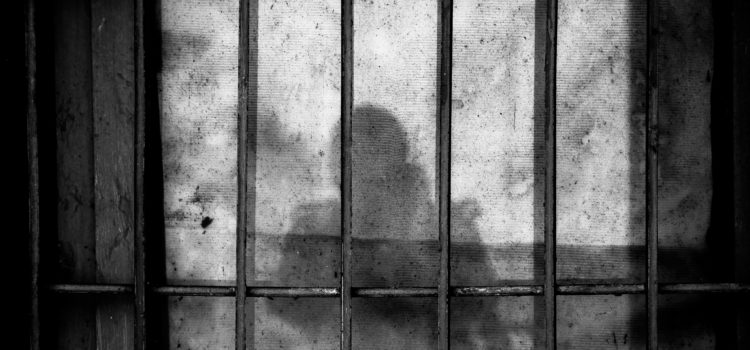

This article is an excerpt from the Shortform summary of "Unbroken" by Laura Hillenbrand. Shortform has the world's best summaries of books you should be reading.
Like this article? Sign up for a free trial here .
What was Omori prison camp in the book Unbroken, and what did it have to do with Louis Zamperini?
Omori prison camp was a World War II labor camp for POWs. Omori prison camp was where Louis Zamperini was held, and where he experienced horrific and inhumane treatment, much of at the hands of one prison guard nicknamed The Bird.
The Bird of Omori Prison Camp
Whatever Louis and the other men had experienced at Ofuna would soon pale in comparison to life at their new POW camp: Omori. A Japanese corporal named Mutsuhiro Watanabe was in charge of disciplinary measures, and none of them, especially Louis, would be spared his wrath.
Omori prison camp was on an artificial island in Tokyo Bay connected to the main city by a bamboo-slat bridge. Watanabe had arrived in winter 1943 and soon became one of the most feared guards in the country. His tactics were so ferocious, Omori became known as “punishment camp.” The prisoners had many names for Watanabe, but the one used the most was “the Bird.”
Watanabe was from an affluent, privileged family. He studied French literature at university and moved to Tokyo to work in a newsroom after graduating in 1942. When Japan went to war, he quit his job and enlisted. Watanabe’s sights were set on becoming an officer, like his brother, and felt his privilege and education made him a certain candidate. But he was passed over for promotions and told he would never move beyond corporal. That decision would be the catalyst for the suffering of hundreds of men in the years to come.
Bitter and resentful of high-ranking men, Watanabe’s angst grew after he was transferred to Omori. A post at a POW camp was considered the lowest rung on the military’s ladder. His sense of dismissal unleashed a monster inside, and he took his anger out on the prisoners. He was known for his savage beatings, which left men with broken windpipes, ruptured eardrums, broken teeth, and a torn ear in one circumstance.
Watanabe was a sexual sadist and derived pleasure from inflicting pain on others. He destroyed prisoner’s family photos and burned letters from home in front of them. He’d demand to be called a different name each day and punished those who forgot. He forced men to violate camp rules, then beat them for it. Men would later recall a small sag in his right eye immediately before a violent tirade occurred.
However, underneath the brutality was a desperate need to be liked and accepted. Often, Watanabe would show remorse following a beating, crying and apologizing and offering the men cigarettes and candy to win their affections. But these reprieves never lasted long, and within an hour of apologizing, he’d flare into another rage and another round of abuse. He had a particular taste for abusing officers and men who’d been successful as civilians, and as an officer and former Olympian, Louis was the perfect target.
The Bird’s Obsession With Louis
The Bird’s interest in Louis started from the moment he saw him. That first day, Louis and the other Ofuna prisoners were told to stand outside the front gates of Omori prison camp. The Bird lounged against the gates, for several minutes, casually eyeing the prisoners without speaking. Then, he was suddenly in their faces, screaming and demanding their names.
When Louis looked in his eyes, he saw madness and looked away. The Bird punched him in the head and demanded that Louis look him in the eye. When Louis did, the Bird punched him again and said not to look him in the eye. That was the moment the men realized they were dealing with a psychopath and when the Bird started his greatest hobby—terrorizing Louis.
The Bird referred to Louis as “number one prisoner” and beat him daily. Louis tried to blend in with other prisoners and hide, but the Bird hunted him like prey and always found him. Louis was desperate for someone to save him, but the only ally the men had at camp was another guard, Private Kano, who often helped the prisoners behind the Bird’s back. He snuck them extra blankets on winter nights, looked the other way when they stole food, and helped sick men visit a POW doctor instead of the merciless camp physician. Despite Kano’s benevolence, there was nothing he could do for Louis.
The abuse weighed heavily on Louis. The Bird was the first thing he thought about each morning, and he fantasized about strangling his abuser. That same childhood insolence made Louis defiant, and he refused to show weakness during beatings. To Watanabe, whose mission in life was to command subservience, Louis’s boldness only made things worse.
Louis’s Life at Omori
The conditions at Omori prison camp were about the same as those at Ofuna. The food was similar in quality and portion size. Louis’s already emaciated condition worsened, as did the other men’s. In total, there were approximately 900 men imprisoned at Omori. Many were from allied countries, such as England and Scotland.
The main difference between the two camps was the slave labor. As part of the Geneva Convention, prisoners could be forced to work as long as they were paid, healthy, and not involved in the war effort. Officers were exempt from working. But after meeting Louis, the Bird decided officers would have to work. They were kept at camp and forced to sew materials for the Japanese Army while the enlisted men were sent out to work 10 to 11 hours a day in shipyards, mines, and fields or build railroad tracks throughout the countryside.
Like Ofuna, a subversive movement had formed among the slave laborers that involved sabotage and stealing. Workers put incorrect mailing labels on war supplies, destabilized train tracks, and sunk barges, all under the noses of the distracted guards. They confiscated shipments and destroyed the contents and stole food and sugar from other shipments. When they returned to camp, their pant legs would be filled with confiscated loot. A black market emerged among the prisoners, and the stolen goods helped save hundreds of lives.
Another way Omori prison camp differed from Ofuna was that it was a legitimate POW camp. Prisoners were registered with the Red Cross so word could get back to their countries, and up until the Bird arrived, men had been able to write letters home. However, Louis was not registered with everyone else. The camp officials had something else in mind for him, but Louis wouldn’t learn what that was for some time.
Louis’s life at Omori prison camp was hell. He struggled for years to recover from his experiences there. Though Omori never left him, he managed to regain his sense of self through his faith.

———End of Preview———
Like what you just read? Read the rest of the world's best summary of Laura Hillenbrand's "Unbroken" at Shortform .
Here's what you'll find in our full Unbroken summary :
- How Louie Zamperini was on track to become an Olympic athlete until the war started
- The unbelievable story of his capture as a prisoner of war
- The ultimate fate of Louie and his captors






